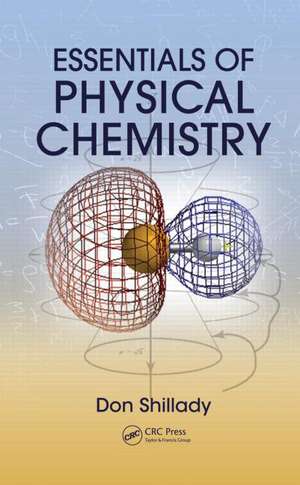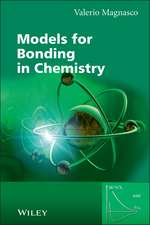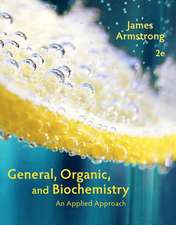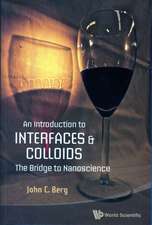Essentials of Physical Chemistry
Autor Don Shilladyen Limba Engleză Hardback – 27 iul 2011
The book begins with a math and physics review to ensure all students start on the same level, and then discusses the basics of thermodynamics and kinetics with mathematics tuned to a level that stretches students’ abilities. It then provides material for an optional second semester course that shows students how to apply their enhanced mathematical skills in a brief historical development of the quantum mechanics of molecules. Emphasizing spectroscopy, the text is built on a foundation of quantum chemistry and more mathematical detail and examples. It contains sample classroom-tested exams to gauge how well students know how to use relevant formulas and to display successful understanding of key concepts.
- Coupling the development of mathematical skills with chemistry concepts encourages students to learn mathematical derivations
- Mini-biographies of famous scientists make the presentation more interesting from a "people" point of view
- Stating the basic concepts of quantum chemistry in terms of analogies provides a pedagogically useful technique
Preț: 336.01 lei
Preț vechi: 431.18 lei
-22% Nou
Puncte Express: 504
Preț estimativ în valută:
64.32€ • 69.88$ • 54.06£
64.32€ • 69.88$ • 54.06£
Carte tipărită la comandă
Livrare economică 21 aprilie-05 mai
Preluare comenzi: 021 569.72.76
Specificații
ISBN-13: 9781439840979
ISBN-10: 1439840970
Pagini: 512
Ilustrații: approx 1430 equations; 51 Tables, black and white; 196 Illustrations, black and white
Dimensiuni: 178 x 254 x 32 mm
Greutate: 1.09 kg
Ediția:1
Editura: CRC Press
Colecția CRC Press
ISBN-10: 1439840970
Pagini: 512
Ilustrații: approx 1430 equations; 51 Tables, black and white; 196 Illustrations, black and white
Dimensiuni: 178 x 254 x 32 mm
Greutate: 1.09 kg
Ediția:1
Editura: CRC Press
Colecția CRC Press
Public țintă
Students enrolled in a one-semester physical chemistry course.Cuprins
Ideal and Real Gas Behavior. Viscosity of Laminar Flow. The Kinetic Molecular Theory of Gases. The First Law of Thermodynamics. ΔThe Second and Third Laws of Thermodynamics. Gibbs’ Free Energy and Equilibria. Basic Chemical Kinetics . Basic Spectroscopy. Early Experiments in Quantum Physics. The Schrödinger Wave Equation. The Quantized Harmonic Oscillator, Vibrational Spectroscopy. The Quantized Rigid Rotor and the Vib-Rotor. The Schrödinger Hydrogen Atom. Quantum Thermodynamics. Approximate Methods and Linear Algebra. Electronic Structure of Molecules. Point Group Theory and Electrospray Mass Spectrometry. Essentials of Nuclear Magnetic Resonance. Appendix A: Relation between Legendre and Associated Legendre Polynomials. Appendix B: The Hartree–Fock–Roothaan SCF Equation. Appendix C: Gaussian Lobe Basis Integrals. Appendix D: Spin-Orbit Coupling in the H Atom. Index. Use of PCLOBE.
Notă biografică
Don Shillady is a native of Montgomery County, Pennsylvania, U.S.A. He earned a B.S. in Chemistry from Drexel University, a Masters in Physical Chemistry from Princeton University and a Ph.D. in Physical Chemistry from the University of Virginia (1970). He has enjoyed teaching Physical Chemistry, Physical Chemistry Laboratory and Quantum Chemistry at Virginia Commonwealth University since 1970. He has edited three specialty monographs: one in Chemical Education and two on the Biological Effects of Electromagnetic Waves as well as coauthored a recent text "Electronic Molecular Structure, Connections Between Theory and Software" with Prof. Carl Trindle. He is now an emeritus Professor of Chemistry at Virginia Commonwealth University but still teaches a rapid two semester course in Physical Chemistry each summer at VCU. He has authored/coauthored 77 research publications and still maintains interest in properties of metal clusters, optical activity of large organic molecules, and Quantum Chemistry software.
Descriere
Particularly well-suited for students not pursuing a traditional chemistry curriculum, such as premedical and forensic science students, this book presents a stand-alone approach to teaching physical chemistry in a one-semester course, a current trend in undergraduate education. This new undergraduate textbook succeeds in inspiring a thorough understanding rather than merely exposing students to what they all too often perceive as a painful and confusing experience. The author includes real-world applications, worked examples, end-of-chapter problems, key solutions, thermodynamic data, and much more to assist in the teaching and learning of physical chemistry.













